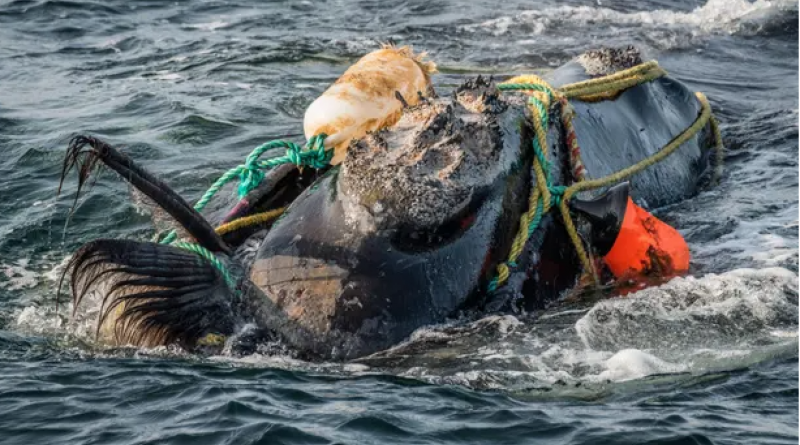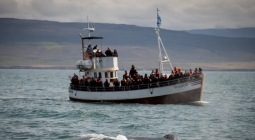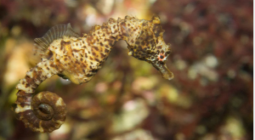North Atlantic right whales critically endangered by climate crisis, new study finds

Warming sea and shifting food sources drive whales into areas where they risk ship strikes and entanglement in fishing gear.
Climate change-induced warming in the Gulf of Maine has resulted in the population of the North Atlantic right whale to plummet, leaving the species critically endangered and conservationists desperate for safeguards, according to a study published this week in the journal Oceanography.
Right whales have long been known for foraging fatty crustaceans in the Gulf of Maine. But in the past decade the water there has been warming faster than 99% of the global ocean, and the whale’s main food source, which thrives in cold water, has deteriorated.
The result – based on a years-long analysis of plankton, right whale sightings and ocean temperature fluctuations – was that the species now travels north-east to the Gulf of St Lawrence in Canada to forage for food, and there is a major decline in the number of female whales reproducing.
“When they can’t build those thick layers of blubber, they’re not able to successfully get pregnant, carry the pregnancy and nurse the calf,” explained Erin Meyer-Gutbrod, an author of the study and a marine ecologist at the University of South Carolina.
She highlighted the fact that in 2009 39 calves were born, a record for the right whale. But birth rates dropped significantly starting in 2010 and in the beginning of 2018, no right whale calves were born.
A significant increase in right whales in the Gulf of St Lawrence was first observed in 2015, according to the study. The whales were probably searching for more food. But instead they found themselves facing a deadly situation.
The policies in place in the Gulf of Maine to protect the whales, including modified fishing gear and vessel speed limits, weren’t in place in the Gulf of St Lawrence. As a result, these creatures started getting hit by ships and entangled in fishing gear.
In the past decade, the population has decreased by about 26%, leaving only 356 North Atlantic right whales on Earth.
With the population reduced to such devastating numbers, in July 2020 the International Union for the Conservation of Nature reclassified the species as critically endangered.
The study, titled “Ocean Regime Shift is Driving Collapse of the North Atlantic Right Whale Population”, was initially prompted by one major right whale death event in 2017, explained Meyer-Gutbrod. In that year, 17 right whale carcasses were discovered, 12 of which were found in the Gulf of St Lawrence.
“We normally see three or four whale carcasses in a year,” she said. “So three or four to 17 is a huge jump.”
Canadian government officials implemented a crisis management plan, which initially looked to be a success when in 2018 there were no reported right whale deaths in the southern Gulf of St Lawrence, according to the study. But the following summer that number jumped again, with 10 deaths recorded.
Meyer-Gutbrod recommended rope-less fishing gear as one good way to address this situation. But on a broader scale, she said it’s important to remember that we don’t know exactly how species are going to respond to the changing climate. And as a result, officials need to increase monitoring efforts and work to predict movements when conditions change.
“What we don’t want to happen is to have the right whale shift to yet a new foraging habitat, and find ourselves unprepared again to protect them in this new environment,” she said. “So that’s true I think for right whales, and I think broadly, we need to think about other species and how they’re managed and try to be more proactive about predicting the impacts of climate change on their distribution.”
3 September 2021
The Guardian




